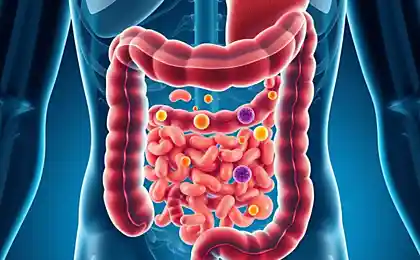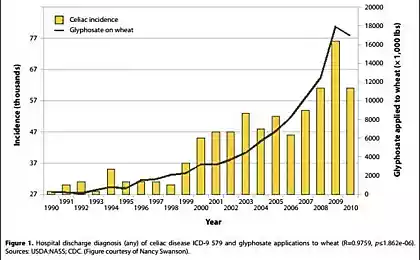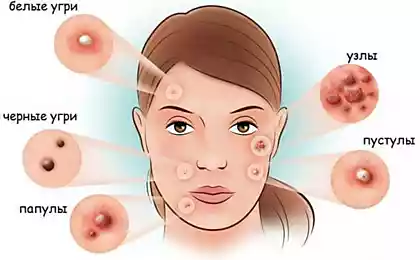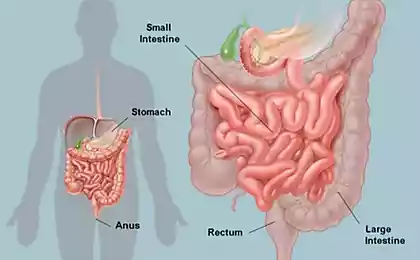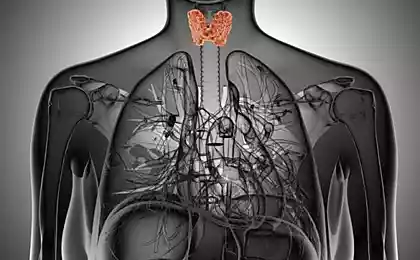496
10 signs that indicate a gluten intolerance
Gluten is a protein found in grain products such as wheat, rye and barley.
For many people, gluten has no effect, while others experience unpleasant symptoms after eating bakery products and other products containing gluten.
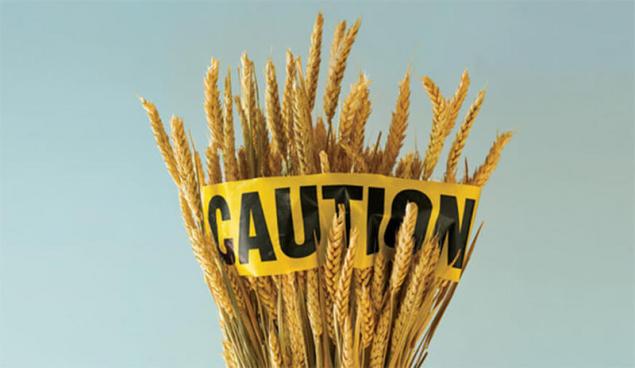
In recent years, many products that are sold in supermarkets, you can find the labels "gluten free".
Nevertheless, many people continue to eat regular foods without knowing why you need to abandon it.
Currently 55 known diseases associated with this protein. It is believed that around 99% of people with gluten intolerance is not passed the official examination.
The absence of obvious symptoms and lack of information about the disease for a long time complicated the diagnosis.
In this article we want to tell you about the most obvious symptoms that indicate that you need to exclude gluten from the diet.
1. Gastrointestinal disorders

One of the most common symptoms of gluten intolerance is a gastrointestinal disorder.
The most common symptoms are:
2. Fatigue
After eating wheat or other grains that contain gluten, some people feel tired and unable to concentrate.
A constant feeling of fatigue and weakness may indicate that you should change your diet.
3. Headache

Constant consumption of this protein provokes inflammatory processes in the body and affects the nervous system.
The result is a chain of reactions, among which constant migraines and headaches.
4. Hormonal imbalance
Premenstrual syndrome, polycystic ovaries and infertility could be directly linked with gluten intolerance.
That's why some medical doctors suggest their patients to give up foods that contain it.
5. Diseases of the joints

As we mentioned above, gluten provokes inflammation in the body and causes unpleasant side effects.
In particular, it may lead to swelling and joint tenderness. The most vulnerable hands and knees.
6. Follicular keratosis
Follicular keratosis is a skin disease that is accompanied by solid red seals.
It is usually associated with poor absorption of vitamin A and essential fatty acids that can be caused by a malfunction of the intestine due to prolonged exposure to gluten.
7. Fibromyalgia
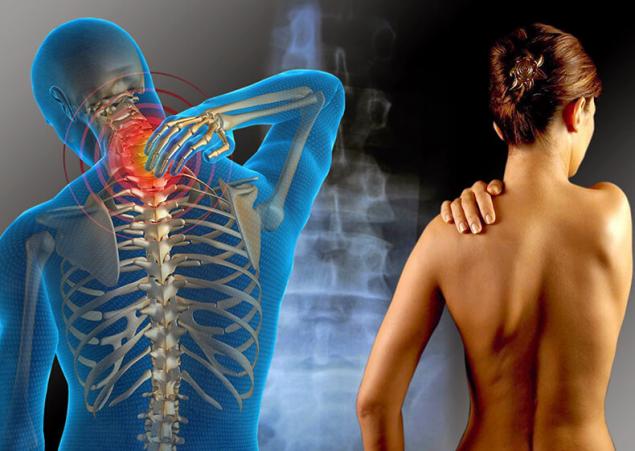
Fibromyalgia is associated with chronic pain and stiffness of muscles and joints. Unlike other diseases, this disease is accompanied by bouts of pain, the origin of which is unknown.
Although this disease is associated with many factors, it is believed that the rejection of the gluten allows you to control the unpleasant symptoms.
8. Neurological symptoms
Gluten irritates the nervous system and weakens the immune system and causes neurological symptoms, such as dizziness and numbness.
9. Autoimmune diseases
People who constantly eat foods with high gluten content to be at greater risk of developing autoimmune diseases than those people who don't eat gluten.
This protein provokes inflammation and causes severe disorders, for example:
10. Behavioral disorders
Psychological problems often become less severe when the patients completely eliminate products with gluten from their diet.
Among the most common mental disorders:
What is the point of tension in the muscles and how to treat them
Soda and bath: simple and effective cure
If you found several of the symptoms mentioned above, it is best to consult a doctor and to exclude from a diet the products containing gluten.published
P. S. And remember, just changing your mind — together we change the world! ©
Source: steptohealth.ru/glyuten-10-priznakov-kotorye-ukazyvayut-na-ego-neperenosimost/
For many people, gluten has no effect, while others experience unpleasant symptoms after eating bakery products and other products containing gluten.

In recent years, many products that are sold in supermarkets, you can find the labels "gluten free".
Nevertheless, many people continue to eat regular foods without knowing why you need to abandon it.
Currently 55 known diseases associated with this protein. It is believed that around 99% of people with gluten intolerance is not passed the official examination.
The absence of obvious symptoms and lack of information about the disease for a long time complicated the diagnosis.
In this article we want to tell you about the most obvious symptoms that indicate that you need to exclude gluten from the diet.
1. Gastrointestinal disorders

One of the most common symptoms of gluten intolerance is a gastrointestinal disorder.
The most common symptoms are:
- Bloating
- Diarrhea
- Flatulence
- Abdominal pain
- Constipation
- Irritable bowel syndrome
2. Fatigue
After eating wheat or other grains that contain gluten, some people feel tired and unable to concentrate.
A constant feeling of fatigue and weakness may indicate that you should change your diet.
3. Headache

Constant consumption of this protein provokes inflammatory processes in the body and affects the nervous system.
The result is a chain of reactions, among which constant migraines and headaches.
4. Hormonal imbalance
Premenstrual syndrome, polycystic ovaries and infertility could be directly linked with gluten intolerance.
That's why some medical doctors suggest their patients to give up foods that contain it.
5. Diseases of the joints

As we mentioned above, gluten provokes inflammation in the body and causes unpleasant side effects.
In particular, it may lead to swelling and joint tenderness. The most vulnerable hands and knees.
6. Follicular keratosis
Follicular keratosis is a skin disease that is accompanied by solid red seals.
It is usually associated with poor absorption of vitamin A and essential fatty acids that can be caused by a malfunction of the intestine due to prolonged exposure to gluten.
7. Fibromyalgia

Fibromyalgia is associated with chronic pain and stiffness of muscles and joints. Unlike other diseases, this disease is accompanied by bouts of pain, the origin of which is unknown.
Although this disease is associated with many factors, it is believed that the rejection of the gluten allows you to control the unpleasant symptoms.
8. Neurological symptoms
Gluten irritates the nervous system and weakens the immune system and causes neurological symptoms, such as dizziness and numbness.
9. Autoimmune diseases
People who constantly eat foods with high gluten content to be at greater risk of developing autoimmune diseases than those people who don't eat gluten.
This protein provokes inflammation and causes severe disorders, for example:
- Psoriasis
- Ulcerative colitis
- Scleroderma
- Lupus
- Rheumatoid arthritis
- Sclerosis
- Hashimoto's Thyroiditis
10. Behavioral disorders
Psychological problems often become less severe when the patients completely eliminate products with gluten from their diet.
Among the most common mental disorders:
- Anxiety
- Depression
- The syndrome of attention deficit and hyperactivity
- Stress
- Irritability
What is the point of tension in the muscles and how to treat them
Soda and bath: simple and effective cure
If you found several of the symptoms mentioned above, it is best to consult a doctor and to exclude from a diet the products containing gluten.published
P. S. And remember, just changing your mind — together we change the world! ©
Source: steptohealth.ru/glyuten-10-priznakov-kotorye-ukazyvayut-na-ego-neperenosimost/









